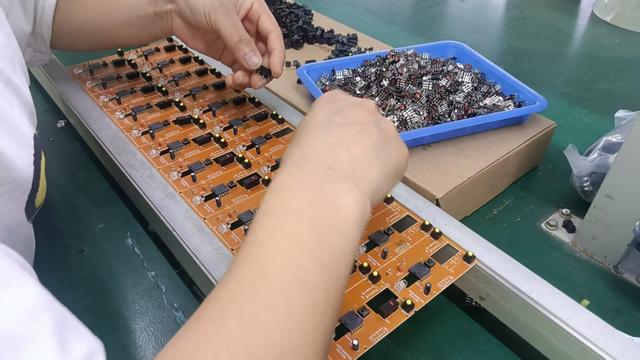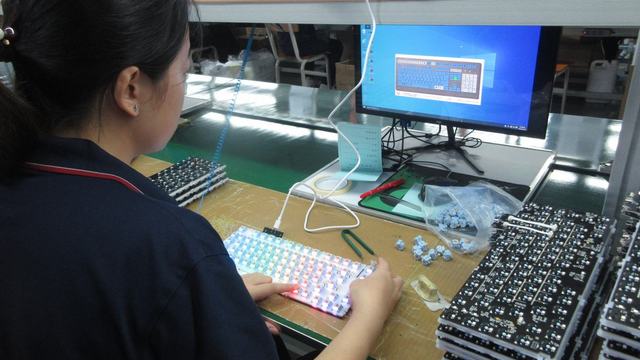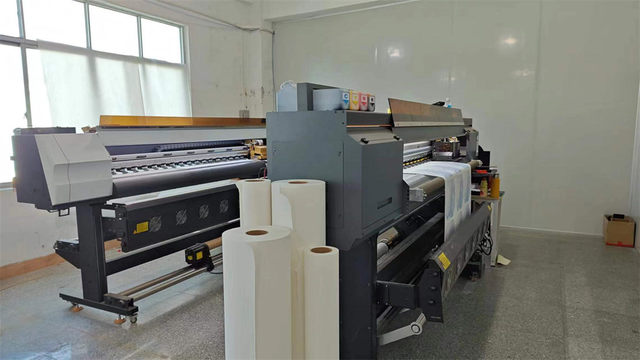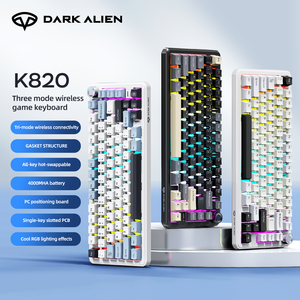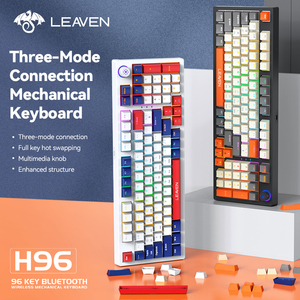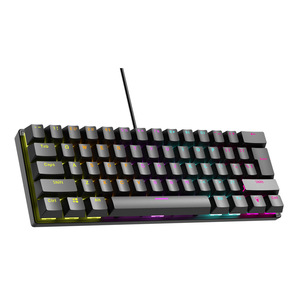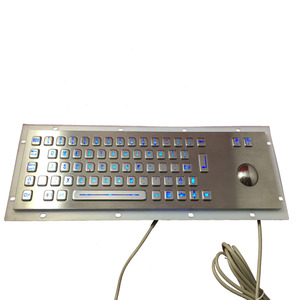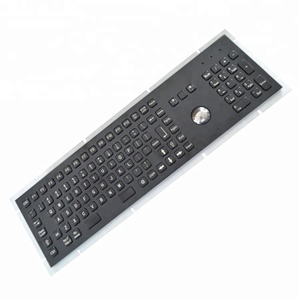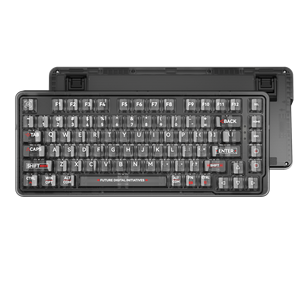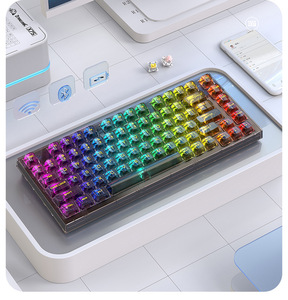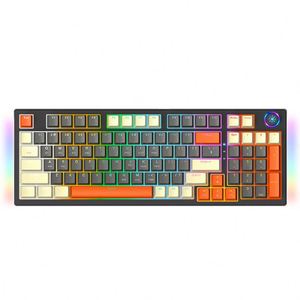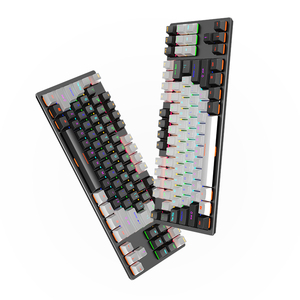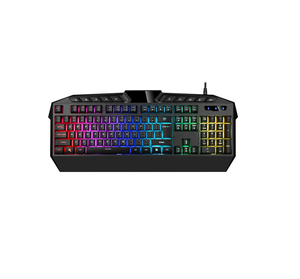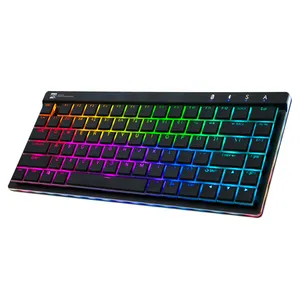Mechanical Keyboard Maker

























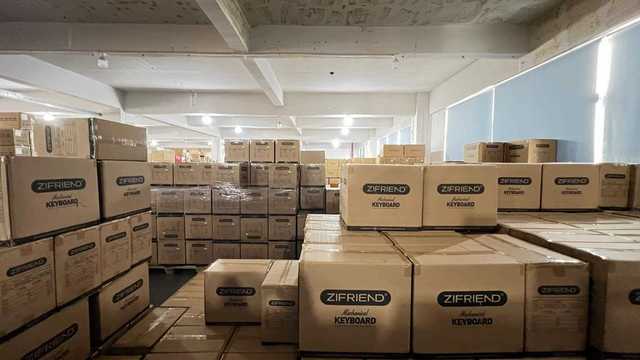


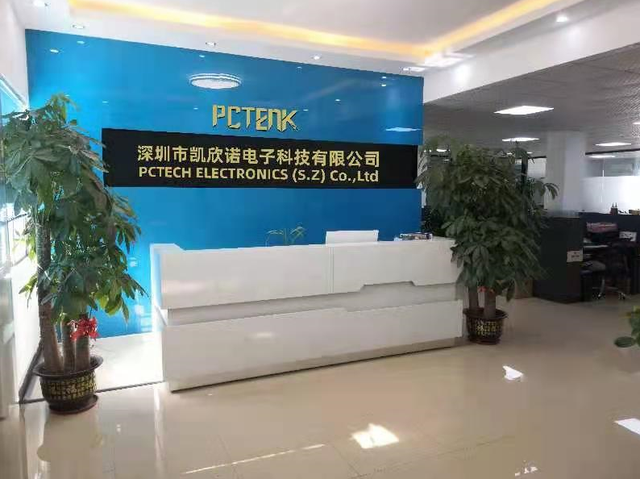


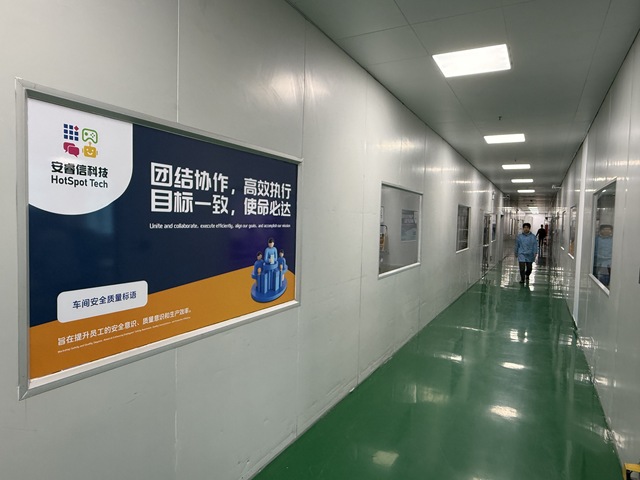





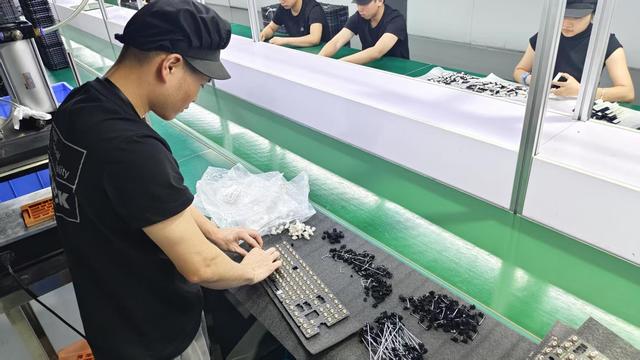






About mechanical keyboard maker
Where to Find Mechanical Keyboard Maker Suppliers?
China remains the global epicenter for mechanical keyboard manufacturing, with key production clusters in Guangdong, Henan, and Jiangsu provinces. These regions host vertically integrated facilities equipped with dedicated assembly lines for switches, PCBs, and enclosures, enabling rapid prototyping and high-volume output. Shenzhen and Guangzhou serve as innovation hubs, specializing in wireless, RGB-lit gaming models with low-latency transmission, while Zhengzhou and Nanjing focus on cost-efficient mass production of mid-tier wired variants.
The industrial ecosystem supports streamlined component sourcing—keycap molds, switch mechanisms, and aluminum casings are available within 50km of major factories, reducing logistics overhead by 18–25%. Suppliers typically operate automated SMT lines and acoustic testing chambers to ensure keystroke consistency, with monthly production capacities ranging from 50,000 to over 200,000 units. This infrastructure enables lead times of 15–30 days for bulk orders and same-day sampling for stock configurations.
How to Choose Mechanical Keyboard Maker Suppliers?
Effective supplier selection requires systematic evaluation across three core dimensions:
Production & Customization Capability
Confirm suppliers possess in-house tooling, injection molding, and surface finish capabilities for full design control. Key indicators include support for custom keycap profiles (OEM, SA, DSA), switch compatibility (Cherry MX, Gateron, Kailh), and enclosure materials (ABS, PBT, aluminum). Prioritize partners advertising "own production line" and offering PCB layout modifications, backlighting patterns, and firmware customization. Minimum Order Quantities (MOQs) vary significantly—from 1 piece for sample validation to 1,000+ units for non-customized models.
Quality Assurance & Compliance
While formal ISO 9001 certification is not universally listed, operational metrics such as on-time delivery rates (>94%) and response times (≤3 hours) serve as proxies for process discipline. Verify compliance with RoHS and CE standards for EU market access, particularly regarding electromagnetic emissions and cable safety. Request test reports for switch lifecycle (target: 50 million keystrokes minimum) and battery performance (for wireless models).
Transaction Reliability & Support
Favor suppliers with transparent revenue disclosures (e.g., US $200,000+ annual online sales) and reorder rates exceeding 24%, indicating customer retention. Low reorder rates (<15%) may signal inconsistent quality or limited after-sales support. Ensure multilingual communication channels and confirm packaging customization options (retail boxes, labeling, branding). Use secure payment methods with milestone-based disbursement, especially for first-time engagements.
What Are the Best Mechanical Keyboard Maker Suppliers?
| Company Name | Location | Production Focus | Monthly Output | MOQ Range | On-Time Delivery | Avg. Response | Revenue Estimate | Reorder Rate |
|---|---|---|---|---|---|---|---|---|
| Zhengzhou Damulin Electronic Technology Co., Ltd | Zhengzhou, CN | Premium wireless, A75/Alice layouts | ~60,000 units | 1–100 pcs | 99% | ≤3h | US $2.8M+ | 28% |
| Beijing Youcheng Times Technology Co., Ltd | Beijing, CN | OEM/ODM, budget gaming keyboards | ~40,000 units | 20–1,000 pcs | 100% | ≤2h | US $200K+ | 24% |
| Nanjing Huaixi Technology Co., Ltd. | Nanjing, CN | High-volume wired, mini layouts | ~50,000 units | 50–1,000 pcs | 94% | ≤3h | US $230K+ | 27% |
| Guangzhou Tainaoteng Trading Co., Ltd. | Guangzhou, CN | DIY, RGB, 96%/98% layouts | ~35,000 units | 1 pc | 100% | ≤5h | US $2K+ | <15% |
| Shenzhen Ruiaili Electronics Co., Ltd. | Shenzhen, CN | OEM, compact 61/75-key models | ~45,000 units | 1 pc | 100% | ≤3h | US $630K+ | <15% |
Performance Analysis
Zhengzhou Damulin stands out with the highest reported revenue and strong reorder metrics, indicating consistent product satisfaction in the premium segment. Beijing Youcheng and Shenzhen Ruiaili offer balanced scalability with 100% on-time delivery and flexible MOQs down to 20 or 1 unit, ideal for startups and niche brands. Nanjing Huaixi excels in economy-tier production, supporting MOQs of 1,000 pieces at sub-$7 price points. Guangzhou Tainaoteng provides maximum flexibility with single-unit sampling but exhibits lower customer retention, suggesting potential gaps in post-sale support. Shenzhen and Beijing-based suppliers lead in responsiveness, critical for iterative design collaboration.
FAQs
How to verify a mechanical keyboard maker’s production capability?
Request facility videos showing SMT lines, switch testers, and packaging stations. Confirm ownership of molds for keycaps and enclosures. Ask for client references or third-party audit summaries if available. Evaluate product range diversity—suppliers listing 80+ keyboard variants likely have robust R&D and inventory management.
What is the typical lead time for custom mechanical keyboards?
Standard orders take 15–25 days. Fully customized designs (new PCBs, molds, firmware) require 35–50 days, including prototype approval. Expedited production (with surcharge) can reduce timelines by 30% for repeat customers.
Can suppliers provide RoHS or CE-certified mechanical keyboards?
Yes, most export-oriented manufacturers comply with RoHS and CE standards. Request copies of test certificates for USB controllers, batteries, and lighting modules. Independent lab verification is recommended for large-volume contracts.
Do mechanical keyboard makers offer free samples?
Sample policies vary. Some suppliers charge full price but credit it against future orders above 50 units. Others offer discounted samples (30–50% off) to qualified buyers. Free samples are rare unless backed by purchase intent documentation.
What customization options are commonly available?
Suppliers typically support color, material, logo imprinting, keycap configuration, switch type, backlighting effects, and packaging design. Advanced options include custom PCB layouts, wireless protocol tuning (2.4GHz/BT5.0), and firmware programming for macro layers or actuation force calibration.







